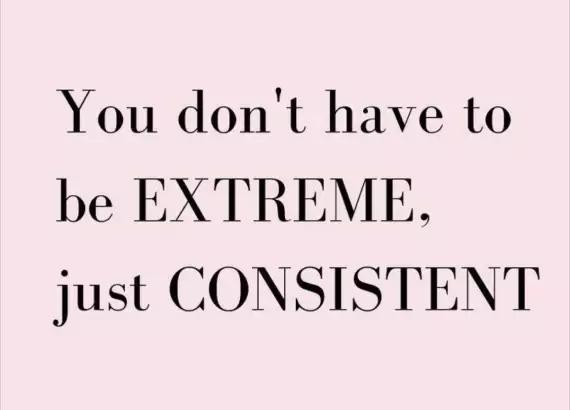I recently had someone reach out to me asking what to do when starting out a job search when you want to make a career change. I instantly responded and said there was way too much for a DM, and that I would write a whole blog about it for her. Michelle, this one’s for you!
I also wanted to make this into a blog because I have made a successful career change in my past, and I know that there is a better way to go about it than endlessly searching the internet job boards to look for the ideal job. That’s the very LAST thing I want you to do here.
Changing careers is not a subject to take lightly. It’s a huge deal, it can be terrifying, and oftentimes you have to take 3 steps back to take one step forward.
Some people can just make a jump and never look back, but I like a little more of a methodological approach. I like to plan, map things out, think things through, and then make a decision. Especially when it comes to paying for my livelihood and how I pay my bills… So that is what I am going to walk you through today. Here are the exact steps I took when I made a major career change in my own life.
Before we go there, you need to start with some serious self-evaluation.
If you want to make a career change at all, it has to be for a reason.
You either don’t like the work you are doing, the industry you are in, or it can be as simple as you don’t like the company environment.
It’s important to do the self-evaluation work first because you want to really dig into and get to the bottom of why you are feeling this way. Is it the JOB that you hate, or is it some other FACTORS that you hate either in your environment or your particular job.
This is an example of my friend and I, who had the exact same job out of college, but we were unhappy for different reasons.
My friend HATED working in public accounting at a Big 4 accounting firm. She hated the writing that goes into auditing and the long hours. But she didn’t hate accounting. She really liked accounting and knew she wanted to do it since high school. She just hated doing it at a Big 4 Public accounting firm. Today she is a senior accountant at a major online travel company and she loves it. She didn’t make a career change but a job move and is so much happier now.
Then there was me. I also hated working at a major accounting firm, but it was because I hated everything about the work I was doing. I hated not talking to people all day long, I hated the hours, I didn’t understand it and I had a really hard time picking up on new things. It just was so hard all the time, and I felt like I was trying to fit a square puzzle piece into a circle, it just didn’t fit. I wanted out of accounting altogether. I took an entirely different career path into sales and I was really happy afterward.
I like to start here because this is key..
Do you completely hate the job you are doing today? Or are there just parts of the job you dislike, and if you were to just change those small things would you be happier?
This difference is massive. Small changes such as an adjustment of responsibilities, or moving to a different company or department can easily change the level of your job satisfaction.
However, changing careers requires a lot more work and attention. The rest of this blog is about the effort you need to put in to make a switch..
Below is the road map to follow to help you better understand how to get onto that new career path.
The Question Game:
Time to take a moment to look inward and get real with yourself. Ask yourself the following questions to better understand the must-haves and nice to haves in your next career step. This will also help you get a clearer picture of what you like doing and what you want to do more of in that next step.
I would advise you take out a journal or piece of paper and give yourself the time to write out the answers to the following questions:
What about my job do I like to do?
What about my job do I NOT like to do?
What would I like to do more of that I am doing now?
What am I not doing now that I would like to do more of?
What in my current role makes me feel energized?
What do I do in my day to day life that I love doing?
What tasks deplete me of my energy?
What am I drawn to?
What do I NEED to have in my next career move?
What can I live without?
What do I think I want to do next?
There is no right or wrong answer here for any of these questions, they all are important questions to start facing and asking yourself.
Painting The Picture:
Whenever I am doing something new, I always brainstorm and create a better picture of what I want. You can go about this in two ways.
You can start by writing down what an ideal job would look like in a journaling format. Write for 10-15 minutes and write out every detail of what a day in a life in this new job would look like and feel like.
If journaling isn’t your thing, make bullets, or jot down random ideas all over a page of the different aspects you want in this new job.
When doing this, it’s important to remember there are rules here. There are no right or wrong answers for ideas or dreams, and those ideas and dreams can change over time. We are trying to get all of our thoughts onto paper so we can start to see what we want to do, and then turn those dreams into a reality.
Research:
When you start researching your ideas, you are backing up your dreams with real live examples of where it is already working in the real world today.
You can do this research by:
- Looking up different profiles on LinkedIn to see what others in that space have for job titles and the career path they took to get there.
- Doing a general industry search for jobs that are available in that specific space.
- Google what certain job titles mean and see if that resonates with you.
The point of this is to give you a clear idea of what YOU want, and then to see where that is happening.
Networking:
If I have learned anything in life, it is that I am always better off with a team behind me. We need to call in the troops and start bouncing our ideas off of other people, so that we don’t feel crazy and alone. Brainstorming with others gives us a whole new perspective, and helps us see things we couldn’t on our own. You can do this by:
- Networking, connecting, and asking people in your close trusted circle for help and guidance.
- Reach out to professionals in that space or job, to get opinions and guidance on how to get to your goal. Or asking them how they got to where they are today.
“Ask and you shall receive”
When I was first contemplating getting out of accounting and into something different I reached out to family members, friends, advisors, mentors that I trusted and worked with their advice. Through all of that digging and networking, I came to the conclusion that accounting wasn’t for me and I thought I wanted to start to get into sales.
Skills Assessment:
Can you actually do the job? As a recruiter, this is a question I am always trying to figure out the answer to when interviewing a candidate.
Oftentimes when you are making that career change the answer is going to be no. That doesn’t mean you can’t get there, it just means that you have to start learning what it takes to get there.
So let’s create our road map here:
- List out some of the skills you don’t have yet that will help you do the role you want and make a list of skills you have that you just need to work on more.
- Attend free seminars or take learning courses that will help you in those skills.
- Sign up for a class.
- Read a book, watch a youtube video, or listen to a podcast on how to’s.
These sound super simple, but I have found that if I don’t know how to do something, there is something out there on the internet, for free, that gives me a step by step guide on how to get there. Like this blog. 😉
Do It For Free:
There is no better experience than experience itself, and everyone likes free help.
Everyone could use an extra hand in their business, and offering your help for free for some time not only gives you the experience you need to learn how to do the job, but it also gives you a foot in the door .
I think one of the hardest parts about making a career change is getting an “in”. Getting someone to book you for a speaking gig, even though they have never heard of you. Getting someone to interview you and look at your resume, with no skills or experience for the job.
Free help will open that door for you. It also makes that transition less stressful because you can learn and make mistakes without having the looming thought of, am I good enough for this? Will I lose my job? It gives you the flexibility to learn and grow.
Make The Move.
Planning is great and it helps me see what needs to get done to the goal. There will come to a certain point, where there is no more planning, researching, analyzing, networking, learning, and you eventually just need to make the move and jump.
We are NOT trying to create paralysis by analysis here. We just want an idea of what we need to do to get to our new career. “Getting there” is the ultimate goal. Going out and DOING it.
You will never be fully ready for anything in life, and there is never a “right time”. Do what you can with what you got, and an opportunity is going to present itself to you.
Making a career change has been one of the best and scariest things I have ever done in my life.
I knew I wanted to make a move, and create a change I just didn’t know where to start. I followed the steps I listed above, and I went from a job in accounting to a job in sales, and I couldn’t be happier that I made that move.
If I can do it, you can do it too. Believe in yourself, believe in your dream, work towards it, and then make the move. I promise you, you won’t regret it. =]
You’ve got this my friend.
Love, Em







